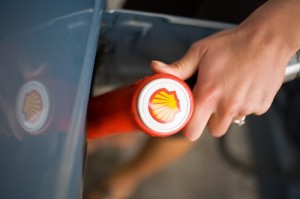Shell has landed the top spot in a survey of the UK’s most digitally connected corporate brands in the FTSE 100. For marketing professionals, Shell’s digital marketing strategy can be used as a benchmark for good practice in the industry, say experts. Other high-scoring brands include Kingfisher, SABMiller, Aviva, and Unilever so observing how they use the various channels for digital marketing will be helpful to marketers.
According to the survey, Shell is the most digitally connected when it comes to marketing its brand to consumers. The oil giant scored highly because of its fully optimised mobile site and its “immersive” and “intuitive” YouTube channel. These activities helped put Shell top of communication consultant Radley Yeldar’s analysis of the UK’s biggest companies’ corporate digital strategies.
Shell was also praised for offering timely and regular content, which is both text-based and multimedia across its all its digital channels. Shell was considered to be the only FTSE 100 firm to be using mobile as a customer communications tool.
Richard Coope, Head of Digital at Radley Yeldar said: “We applaud those companies who have dipped a tentative toe in the exciting universe of mobile communications but there is much to be done. Mobile is undoubtedly an area to watch in the future. As more and more time-poor stakeholders want (and need) to connect on the move, businesses will have to respond to the demand. We predict that mobile will shift from being an add-on or afterthought within the digital toolkit to becoming an integrated part of a company’s communication strategy”.
However many companies in the FTSE 100 are failing to use digital, social and mobile channels effectively to talk about their corporate brands, the report says.
Failings include one in five (22%) companies not introducing “their story” on their homepage. Another problem cited was the fact that only 22 of the FTSE 100 offer mobile-optimised sites and just 17 having mobile apps.
Companies ranking the lowest for their joined-up corporate communications digital strategies include Prudential, Burberry, International Airlines Group and Admiral, according to the survey.
Coope said: “These companies tend to feel a bit overwhelmed by the pace of change. The technology can be a bit bewildering. Trying to get your head around whether you should have a mobile website or a mobile app can take time to work out. Also, people do end up focusing on the technology rather than what it is trying to do from a communications perspective.”
Video is fast becoming a requirement for corporate websites, yet only 61 of the FTSE100 have video anywhere on their main corporate site with only 21 featuring video on the homepage, reveals the report. Quality is currently poor and viewers tend not to be engaged for more than a minute, says Radley Yeldar.
Coope says: “Our research has flagged-up that businesses need to use online video in a way that’s intuitive for users and integrated with their other digital channels. It’s a powerful tool which gives a voice and a platform to employees and customers,as opposed to senior execs, who are often the business’s most effective spokespeople. It is a tool that is currently under-utilised by the FTSE 100.”
Top 10 most digitally connected FTSE 100 companies
1. Shell
2. Unilever
3. SAB Miller
4. Kingfisher
5. Aviva
6 = Reckitt Benckiser
6 = Centrica
8 = InterContinental Hotels Group
8 = BP
8 = Sainsbury’s
Browse our marketing jobs today.
Photo: Shell
Video CVs: A help or hindrance when applying for marketing jobs?
Today’s CVs are full of hyperlinks to online profiles, blog spots, digital portfolios and company pages. The next development – something UK recruiters are gradually seeing more and more of – is the video CV, or VCV. The marketing, PR and new media sectors are likely to see an influx of the latest VCVs during 2013 and beyond, marketing HR experts predict.
Do self-employed marketing professionals earn more?
How does this compare with permanent jobs in marketing? According to the Croner Marketing Rewards Survey 2012/2013, the average London salary for a marketing executive working in middle management is currently £35,000, while a brand manager in London is paid £39,000. A marketing comms manager gets £38,000.
80% of smartphone owners use their devices while watching television
80% of smartphone owners use their device while watching television, according to the latest eCustomerServiceIndex results from eDigitalResearch and IMRG






